Educators
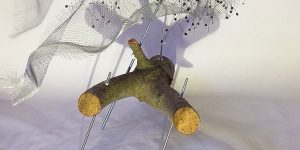
Mutations
The artistic proposal is presented as a curatorial articulation of multiple and heterogeneous work processes, but characterized by mutation. They are processes of works in mutation and on the mutation, like a seismograph of uncertainty. In their various formats, the works will be joined on the website of the UACh Réplica Gallery linked to the Ars Electronica Festival web platform.
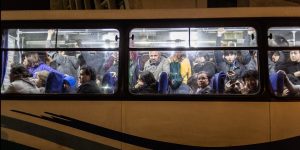
Mutations of the image. The revolt of photography
The first Valdivia International Festival of Photography, Directed by Carlos Fischer, was shaken by the revolt. The photographers changed their workshops on the streets. Lectures mutated. Images too. The abundant photographic material produced during those days in Valdivia, along with the video that reconstructs the convulsed days of the festival, make up an unexpected videogram of the revolt that can be viewed on the online platform of the Replica Gallery associated to UACh's Mutations project.
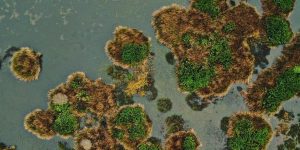
Ecosystem mutations. Wetland Removal.
An 8.5% of the surface area of Los Rios Region in southern Chile is made up of wetlands. Around the city of Valdivia, the presence of wetlands is particularly dense and some areas today are national monuments. A wetland is an ecosystem that is sometimes divided at the surface, but which constitutes a networked ecological continuum. Thus, to alter a part of the wetland is to modify the whole ecosystem. Promoting the convergence of different organizations, the Austral Garden program proposes an aerial route over the geography and natural environment where Universidad Austral de Chile is located. The purpose is that scientists and researchers can share their studies and reflections to spread the importance of wetlands, as well as showing the mutation of this natural eco-system.
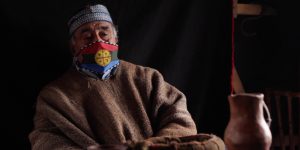
Local mutation imaginaries. Mapuche Culture Workshop.
As part of the celebration of the “Año Nuevo en el Sur” (Southern New Year), the Laboratory of Visual Anthropology of the Museological Direction, is conducting Workshops on Mapuche Culture taught by David Rain Canicura, peumatufe (the authority that guides the direction and decision-making of the community based on dreams) and nguillatufe (the authority responsible for the ceremony of Nguillatun). The proposal of the Mutations program is to generate a pre-recorded workshop that will allow the Mapuche imaginary about mutations to be better understood, as well as the experience of Mapuche communities in the current pandemic.
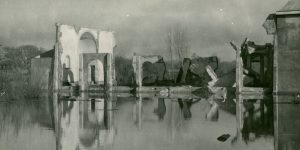
Telluric Mutations. The 1960 earthquake.
On May 22, 2020, 60 years since the largest seismic catastrophe ever recorded in the world was commemorated, a catastrophe whose epicenter was the city of Valdivia. The event had profound landscape, social, economic and cultural consequences for the affected cities and territories. The earthquake was a complex heritage where catastrophe and community resilience converge. The activity of the Austral Garden program is to share the series of initiatives prepared by the Museological Direction of Universidad Austral de Chile.
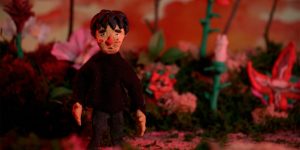
Prix Ars Electronica u19–create your world
Die diesjährige u19-Ausstellung lädt alle Gewinner*innen ein, Ideen und Projekte miteinander auszutauschen. Ihre „Homebase“ ist die physische Ausstellung der Projekte, wo sie diese anderen Künstler*innen und dem Publikum erläutern können. Sie lassen andere an ihren Talenten teilhaben und präsentieren dem Publikum des Ars Electronica Festival ihre Sicht auf mögliche Zukunftsszenarien.
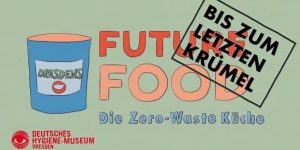
Dresden’s Future Food. Zero Waste Edition – To the Last Crumb
No idea what to do with old bread or the leaves of radish? In three short tutorials, learn how to prepare a delicious starter, main course and dessert by using seasonal and regional ingredients. Part of the Deutsche Hygiene-Museum’s digital “Future Food. What will we eat tomorrow?” program. In cooperation with Commerzbank Foundation.
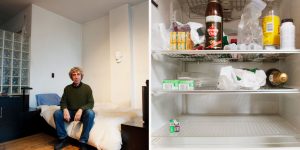
Virtual tour through the exhibition “Future Food. What will we eat tomorrow?”
Visitors can virtually explore the special exhibition Future Food. What will we eat tomorrow? that is held at the Deutsche Hygiene-Museum Dresden from May 2020 to Feb 2021. The exhibition takes up on one of the most urgent questions of the 21st century: how can we create the future of food facing the global challenges?
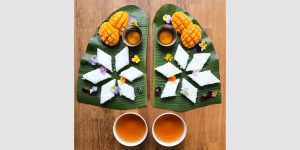
How do regional food systems work?
In times of multiple crises, the issue of food security is vividly debated. The panel discussion addresses opportunities and challenges of regional food production and supply with a focus on Dresden, Saxony.
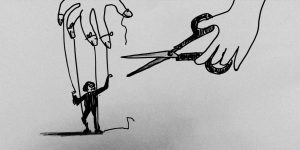
Festivalpost: Topic Twist
Ars Electronica create your world (AT)
Die Festivalpost erinnert den ein oder anderen namentlich vielleicht an die geliebte Postcity, beschäftigt sich inhaltlich aber mit den diesjährigen Festivalthemen. Zumindest Anfangs. Durch den Wechsel von Zeichnung und Wort drehen und wenden sich die Themen in ihrer Bedeutung und am Ende entsteht eine Kette, eine Transformation oder eine Weiterentwicklung als Festivalpost. Wird aus Demokratie eine Ente, aus Autonomie eine Leiter, aus Menschheit eine Alien-fressende Raketenfüllfeder? Wir sind gespannt auf die Reisen der Themen.

The Crying Book with Heather Christle and Performance by Gary Motley
Heather Christle, Gary Motley
The Crying Book is a deeply personal tribute to the fascinating strangeness of tears and the unexpected resilience of joy. Why do we cry? How do we cry? Heather Christle has just lost a dear friend to suicide and now must reckon with her own depression and the birth of her first child. As she faces her grief and impending parenthood, she decides to research the act of crying: what it is and why people do it. She researches tear-collecting devices and explores the role white women’s tears play in racist violence. Motley performs Someday Sunday as Christle reads from her first book of nonfiction, The Crying Book.

Meter machen
Maria Anna Eckerstorfer, Sabine Touzimsky-Köstler, Wolfgang Schreibelmayr, Lisa Wieder/ Kunstuniversität Linz, Projekt Abteilung Bildnerische Erziehung (AT)
Das Abstandhalten ist eine sehr wichtige Regel. Aber wie wir Menschen so sind, ergeben sich daraus Situationen, die zum Schreien komisch, super lustig oder total verwirrend sind. Am diesjährigen Ars Electronica Festival wollen wir genau solche Szenen sammeln. Schicke uns dazu ein selbst-inszeniertes Foto oder einen ganz kurzen Text über dein Erlebnis per mail und folge uns auf Instagram unter kunstuni.linz.metermachen
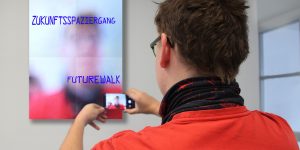
future walk
Bettina Gangl (AT), Birgit Pölz (AT), Helmut Doblhofer (AT) –TeilnehmerInnen Virtual Office FAB Linz (AT)
Die jungen Leute im Virtual Office haben über Autonomie nachgedacht und darüber, wie automatisierte Prozesse und KI unser Leben in Zukunft beeinflussen werden. Mittels verschiedener Strategien visualisieren sie ihre Fantasien, Träume und Ängste. Sie lassen das Publikum bei einem Augmented-Reality-Spaziergang an ihren Gedanken und Zukunftsvisionen teilhaben.
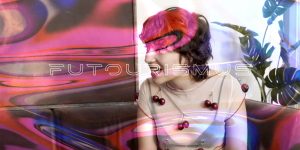
Tourismus von morgen
Ars Electronica, Oberösterreich Tourismus (AT)
Im Rahmen des Langzeitprojekts „Tourismus von morgen“ wurden Einreichungen aus dem Pool der Kategorie *u19 – create your world* des Prix Ars Electronica gemeinsam mit Oberösterreich Tourismus für ein Auftragsprojekt ausgewählt.
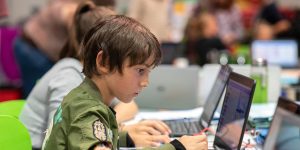
CoderDojo
CoderDojo Linz (AT)
Das CoderDojo ist ein Club für Kinder und Jugendliche, die das Programmieren lernen und dabei Spaß haben wollen. Bei regelmäßigen Treffen lernen sie, wie man Code schreibt, Websites entwickelt oder Spiele und Apps programmiert.
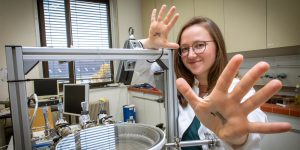
Reparatur der Zukunft
Ö1
Mit der Initiative *Reparatur der Zukunft* will Ö1 die Fragen der 20- bis 30-Jährigen aufgreifen und ihren Ideen mehr Raum geben. Ars Electronica präsentiert zwei Projekte zu diesem Thema
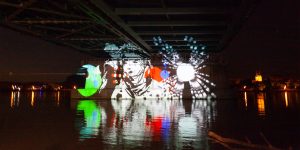
Tagtool Connect
Bei ihrem vierten Auftritt beim Festival Ars Electronica präsentieren OMAi die erste öffentliche Online-Multiplayer-Tagtool-Session, bei der sich ausgewählte internationale Künstler*innen über das Internet zusammenschließen, um spontane Projektionskunst zu schaffen.
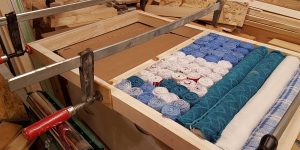
Master Class Audio Design Goes Interactive
Master Class Audio Design @ St. Pölten University of Applied Sciences (AT)
Die Masterklasse Audiodesign des Studiengangs Digital Media Production ermöglicht es, die große Bandbreite des Audiodesigns zu erfahren. Dies geschieht durch Fokussierung auf vier Projekte, die von jeder Student*in über die vier Semester eigenverantwortlich konzipiert, entwickelt, geplant, umgesetzt und evaluiert werden. Aus den diesjährigen Semesterprojekten wurden drei ausgewählt, die im Rahmen des Ars Electronica Festivals präsentiert werden.
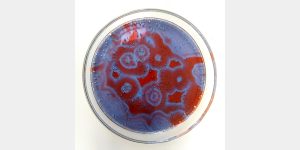
STEAM Popup Lab
JKU Linz School of Education (AT)
STEAM Popup Lab bietet eine virtuelle Reise, die uns erlaubt, die Bedeutung der Muster um uns herum zu verstehen. Muster finden sich überall: in Fraktalen in der Natur, in den Blutgefäßen im menschlichen Körper genauso wie in den oszillierenden Signalen, die von den Sensoren eines Telefons erzeugt werden. Sie können Roboter steuern, Origami-Muster falten, das Signal einer Spielplatzschaukel messen, an einer Live-Chemielaborsitzung teilnehmen und vieles mehr.
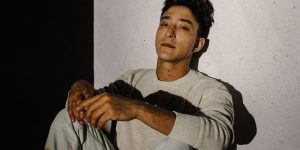
Science Gallery Detroit Presents Shigeto
Shigeto
Artists take on pseudonyms for a multitude of reasons, but in Zach Saginaw’s case those reasons run deeper than most. Shigeto is Zach’s middle name as well as his grandfather’s name: a tribute to the Japanese branch of Zach’s family tree. Shigeto also means “to grow bigger”—appropriate, given Zach’s premature birthweight of less than a pound. Today, Shigeto stands for Zach’s vividly beautiful electronic music. Beat-driven, but given to richly textured sound design; rhythmically fractured, but melodically sumptuous, Shigeto’s music is a bridge between the past and present, bringing the artist face to face with a creative legacy that spans decades.


